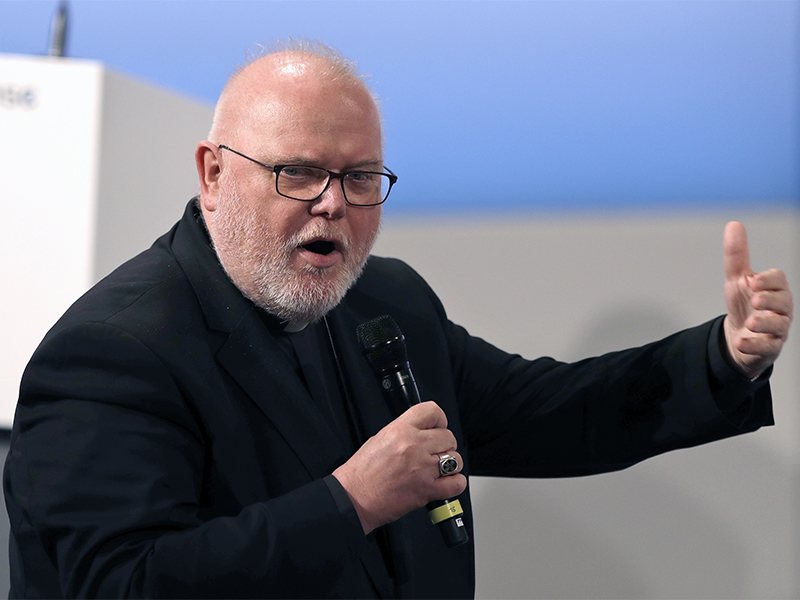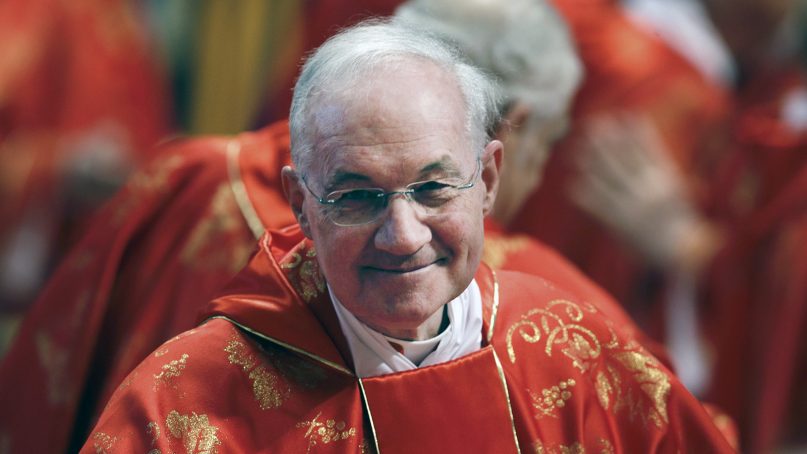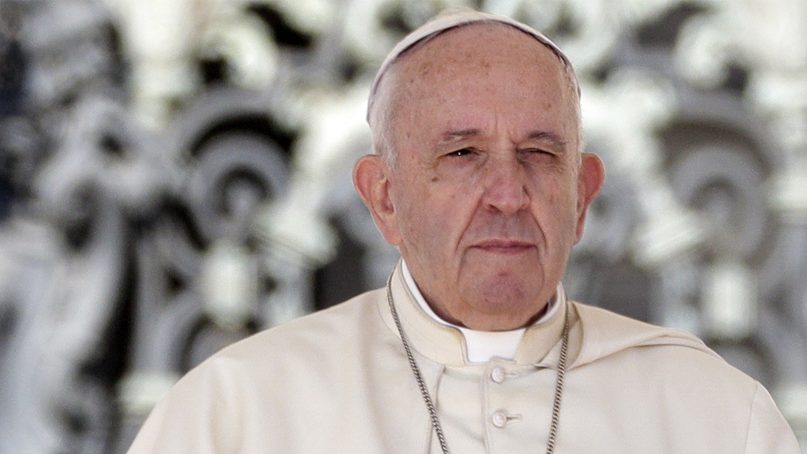VATICAN CITY (RNS) — Following an attempt by the Vatican to exercise control over its upcoming and reform-driven gathering, the Catholic Church in Germany has made it clear that it has no intention of backing down, proving to be yet another wedge in the internal church wars that have plagued Pope Francis’ six-year papacy.
At the root of the increasingly tense argument is a two-year national consultation of German bishops that seeks enough decision-making authority to lead the local Catholic community through some hot-button issues touching on ministry and morality.
Under the hybrid definition of “Synodal Assembly,” the bishops have decided to address topics ranging from the clerical abuse crisis to female priesthood and sexuality. Both the subject matter and the fact that the meeting will rely heavily on the involvement of lay people are testing Pope Francis’ policy of decentralization and raising concerns at the Vatican that the German bishops are trying to take their own independent path.
“We hope that the results of forming an opinion (on these matters) in our country will also be helpful for the guidance of the Universal Church and for other episcopal conferences on a case-by-case basis,” said Cardinal Reinhard Marx, the head of the German episcopal conference, in a letter sent Thursday (Sept. 12) to the Vatican.
Initially, Francis had clarified in a letter to the German bishops signed June 29 that in a “synodal process” the entirety of the church must be involved, top to bottom, with an emphasis on the top.
“The universal Church lives in and of the particular churches,” the pope wrote, “just as the particular churches live and flourish in and of the universal Church, if they are separated from the whole ecclesial body, they weaken, wither and die.”
Judging a situation at the grassroots level is a good start, he added, but it must later be evaluated in context with the whole church, guided by the bishops and led by the pope. Only this way, he said, will the Catholic community be able to “overcome an angst that makes us close in on ourselves and on our particularities.”

Munich Archbishop Cardinal Reinhard Marx speaks during the Munich Security Conference in Munich, southern Germany, on Feb. 17, 2017. (AP Photo/Matthias Schrader)
Francis’ suggestions for the assembly, which wanted to focus more on evangelization and communion, was voted out by a large majority of the German episcopacy during its Aug. 19 meeting.
To address the growing concerns on the German assembly, the Vatican tapped Canadian Cardinal Marc Ouellet, who heads the Vatican department overseeing bishops. Ouellet has a bit of a reputation for bringing back outliers. In a public letter last year, he chastised Italian Archbishop Carlo Maria Viganò’s “blasphemous” appeal for the pope to resign due to his alleged role in the clerical sex abuse scandal involving Theodore McCarrick.
Ouellet is also the man who reined back the U.S. conference of bishops during their meeting last November, where they were set to discuss policies for accountability and the protection of minors. At the time, the cardinal explained in a letter that such decisions in the United States would have had complex legal ramifications.
Once again with the German bishops, Ouellet is taking this tack.

Canadian Cardinal Marc Ouellet attends a Mass at the Vatican in 2013. (AP Photo/Andrew Medichini)
In a four-page evaluation of the legal repercussion of the Synodal Assembly signed on Sept. 4, Ouellet told Marx that the gathering “is not ecclesiologically valid.” Ouellet’s main argument in the evaluation centered on the topics the Germans had set out to discuss; he contends their decisions on these topics not only impact their region, but the entire church, and risk splintering the already fractured Catholic community. More than that, though, the bishops had not listened to the pope.
In his answer to Ouellet, Marx clarified that the initial proposal for the synod has been significantly reviewed by the permanent council over the summer so that it no longer contains some of the hot-topic issues presented in the initial proposal. Regardless, he maintained that a debate could also include matters already part of the magisterium of the church.
“Countless believers in Germany consider (these issues) to be in need of discussion,” Marx added, alluding to the fact that the assembly still wishes to have an open conversation on questions that have already been settled by the church.
The German cardinal is currently in Rome for a meeting with Pope Francis and with Vatican representatives. The last chapter of this saga remains to be decided.
Marx wouldn’t be the first to leave the papal halls crestfallen, but the concerns of the German bishops will likely play an important role as the Vatican prepares to host another troublesome synod on the Amazon region in October, where the ever-existing tensions between the center and the peripheries in the Catholic world are poised to take center stage.





